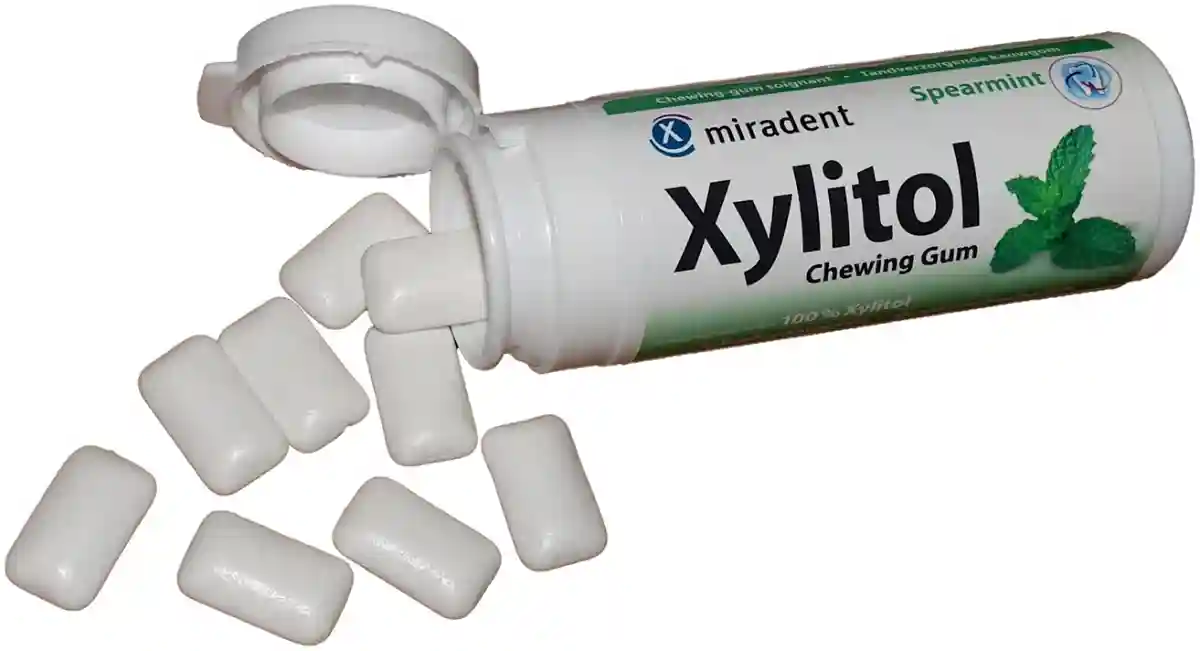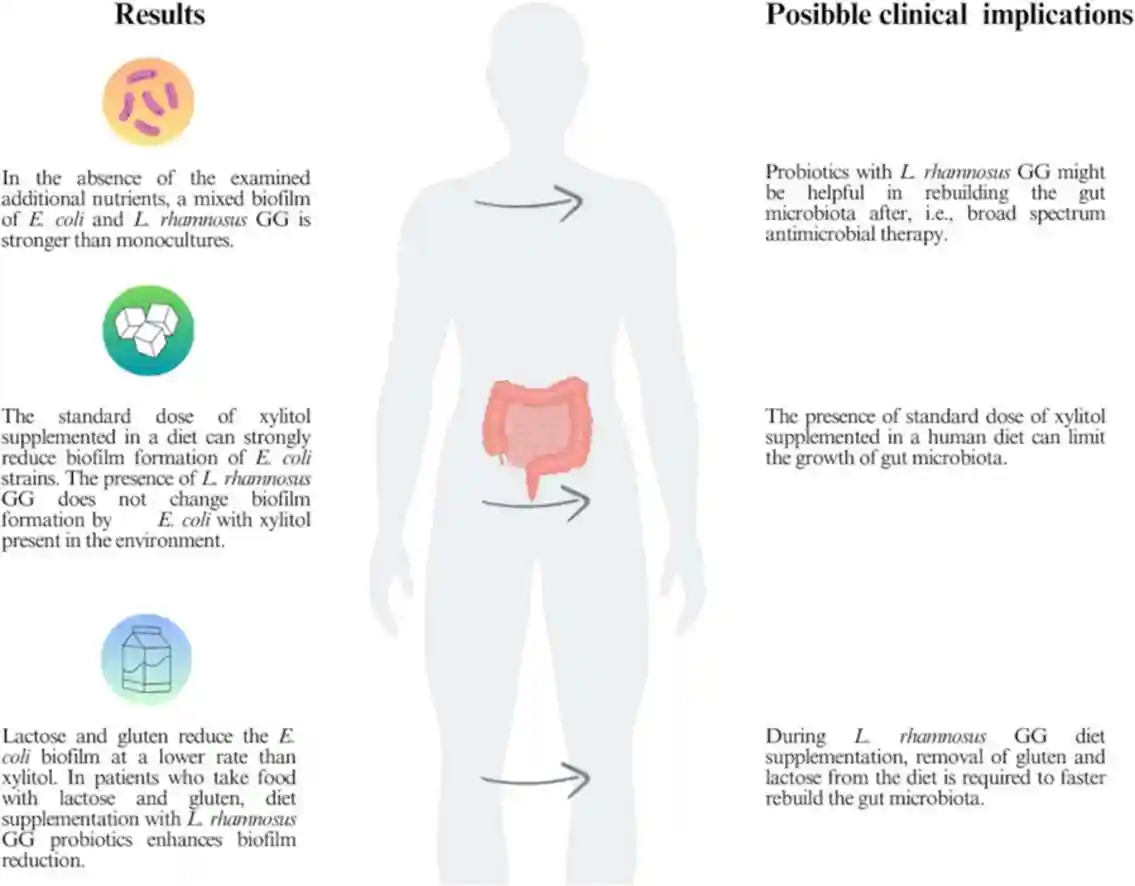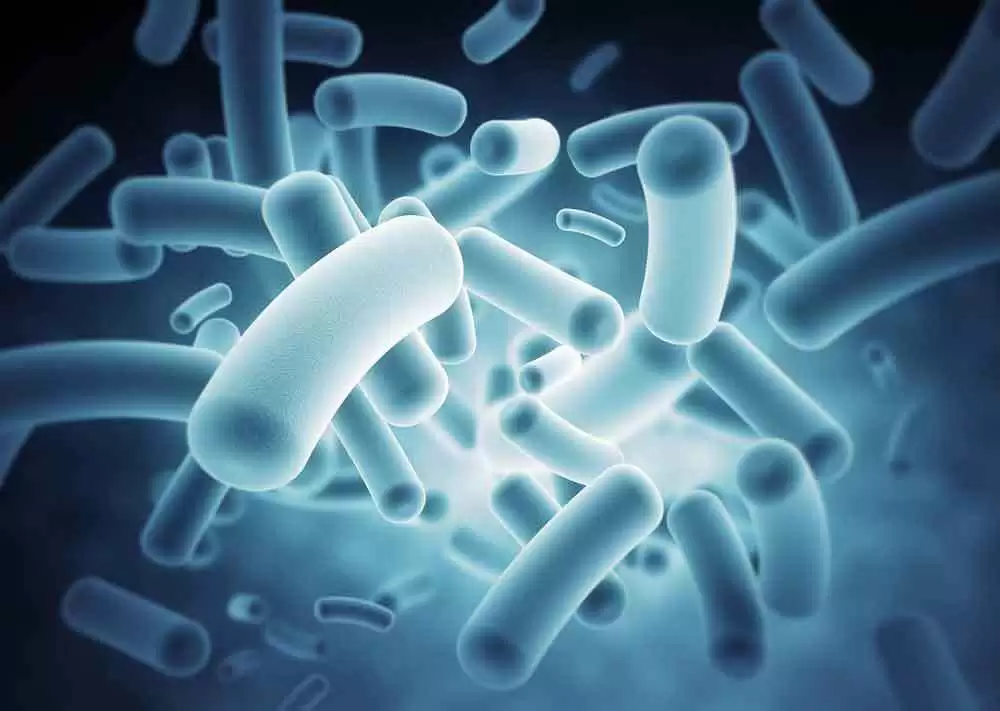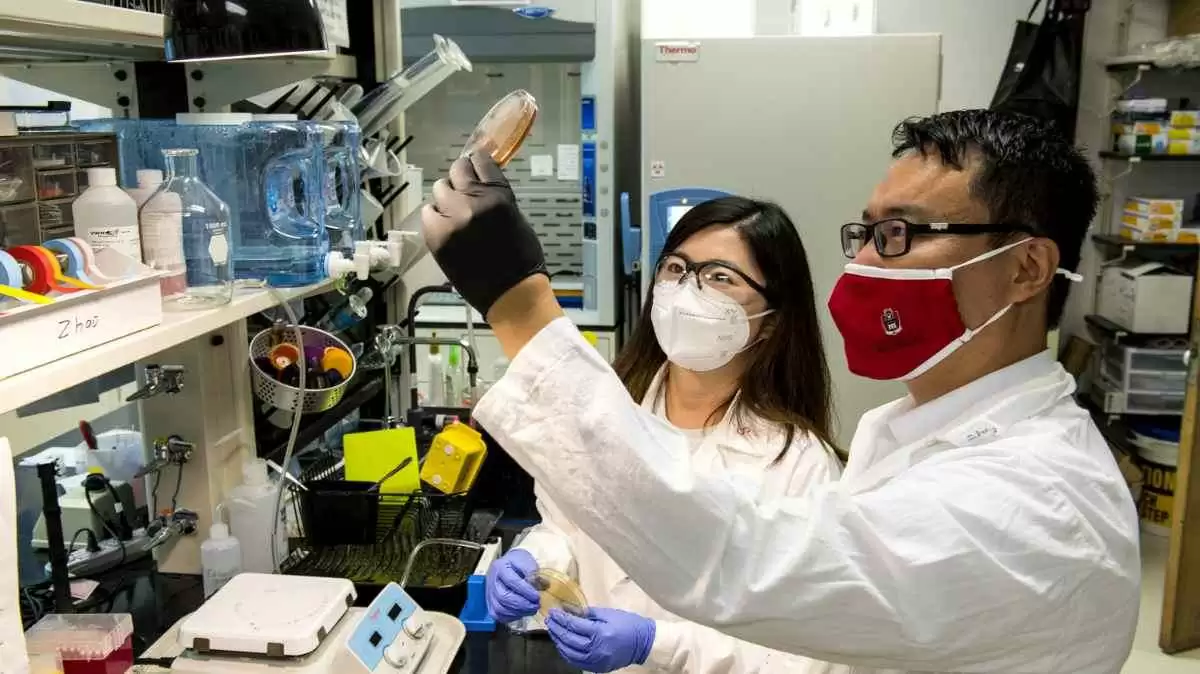Celiac.com 04/18/2024 - Human gut microbiota contains many viruses, bacteria and fungi. Escherichia coli representatives are facultative anaerobic bacteria in the colon that play a crucial role in the metabolism of lactose, vitamin synthesis and immune system modulation. E. coli forms a biofilm on the epithelial cell surface of the intestine that can be modified by diet compounds, such as gluten, xylitol, lactose and probiotics.
Researchers recently examined the impact of probiotic-derived Lactobacillus rhamnosus GG strain on non-pathogenic E. coli biofilm. They also also treated mono- and multi-species biofilm with gluten, xylitol and lactose.
Celiac.com Sponsor (A12):
The research team included Joanna Kwiecińska-Piróg, Karolina Chomont, Dagmara Fydrych, Stawarz Julita, Tomasz Bogiel, Jana Przekwas, and Eugenia Gospodarek-Komkowska.
They arę variously affiliated with the Microbiology Department, Pharmaceutical Faculty, Collegium Medicum in Bydgoszcz, University of Nicolaus Copernicus in Toruń in Bydgoszcz, Poland; and the Clinical Microbiology Division, Antoni Jurasz University Hospital no 1 in Bydgoszcz, Poland.
Probiotics May be Helpful in Rebuilding Gut Microbiota After Broad Spectrum Antibiotic Therapy
The researchers used 96-well plates to obtain biofilm growth. They stained the biofilm with crystal violet. To evaluate the type of interaction in mono- and multispecies biofilm, a new formula was introduced - biofilm interaction ratio index (BIRI). To describe the impact of nutrients on biofilm formation, they calculated the biofilm formation impact ratio (BFIR).
The biofilms formed by both examined species are stronger than in monocultures. All the BIRI values were above 3.0. It was found that the monospecies biofilm of L. rhamnosus is strongly inhibited by gluten (84.5%), while the monospecies biofilm of E. coli is strongly inhibited by xylitol (85.5%). The mixed biofilm is inhibited by lactose (78.8%) and gluten (90.6%).
The relations between bacteria in the mixed biofilm led to changes in biofilm formation by E. coli and L. rhamnosus GG.
Study Highlights:
• Combining E. coli and L. rhamnosus creates a stronger biofilm than when each bacterium is cultured alone.
• Adding xylitol to the diet can decrease the formation of biofilms by E. coli bacteria.
• Lactose and gluten are less effective than xylitol in reducing the formation of biofilms by E. coli bacteria.
The results indicate that probiotics might be helpful in rebuilding the gut microbiota after broad spectrum antibiotic therapy, but only if gluten and lactose are excluded from diet.
Read more at: Sciencedirect.com











Recommended Comments
Create an account or sign in to comment
You need to be a member in order to leave a comment
Create an account
Sign up for a new account in our community. It's easy!
Register a new accountSign in
Already have an account? Sign in here.
Sign In Now